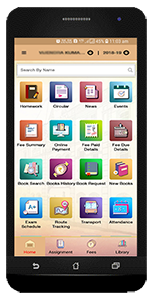Exploring the World of Junior School Music
Tue 15 Oct 2024 Category : General | Posted By : admin

Music has a unique ability to bring joy, creativity, and expression into the lives of junior school students. From singing and dancing to playing instruments, music-making offers endless opportunities for young learners to explore and connect with the world around them. In this blog post, we'll celebrate the joy of music-making with junior school students and showcase the music lessons, performances, and extracurricular activities available at schools. Additionally, we'll discuss the cognitive, emotional, and social benefits of music education for young learners.
Celebrating Music-Making
At junior schools around the world, music classes are alive with the sound of laughter, rhythm, and melody. Students eagerly gather to sing their favourite songs, learn new dance moves, and experiment with different musical instruments. Whether it's strumming a ukulele, tapping out rhythms on a drum, or belting out tunes in the school choir, junior school students are encouraged to explore their musical talents and express themselves creatively.
Showcasing Music Lessons and Activities
Junior schools offer a variety of music lessons, performances, and extracurricular activities to enrich students' musical experiences. From weekly music classes taught by dedicated music teachers to school-wide concerts and talent shows, there are countless opportunities for junior school students to showcase their musical talents and connect with their peers through music.
Music lessons often include instruction in singing, rhythm, music theory, and playing a variety of instruments, such as the recorder, xylophone, and keyboard. Additionally, schools may offer extracurricular music programs, such as choir, band, and orchestra, where students can further develop their musical skills and perform in front of audiences.
Benefits of Music Education
Music education provides a wealth of cognitive, emotional, and social benefits for young learners. Research has shown that participating in music activities can improve children's cognitive skills, including memory, attention, and problem-solving. Music also has the power to evoke emotions and promote emotional expression, helping students develop empathy and emotional intelligence.
Furthermore, music education fosters social skills and collaboration, as students work together to create music and perform as part of a group. Whether it's singing in harmony, playing in a band, or dancing in a group choreography, music-making encourages teamwork, communication, and cooperation among junior school students.
In conclusion, music education is an essential part of the junior school experience, offering students the opportunity to explore their creativity, develop their musical talents, and connect with their peers. By celebrating the joy of music-making, showcasing music lessons and activities, and discussing the cognitive, emotional, and social benefits of music education, we can inspire junior school students to embrace music as a lifelong passion and source of enrichment in their lives.


